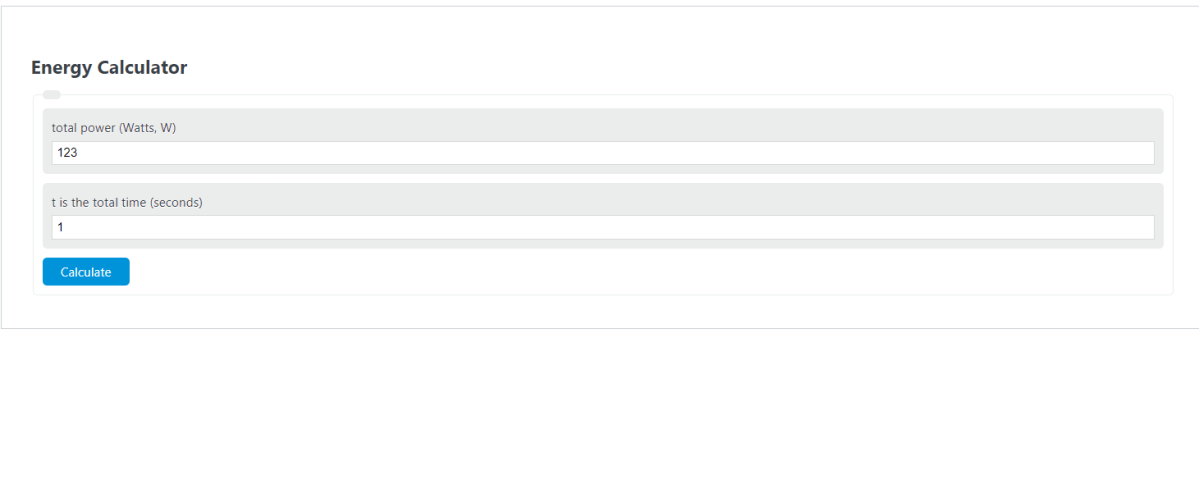Enter the total power and the total time into the calculator to determine the Energy.
- All Energy Calculators
- Mechanical Energy Calculator
- Average Kinetic Energy Calculator
- Elastic Potential Energy Calculator
- Electric Energy Calculator
- Surface Energy Calculator
Energy Formula
The following equation is used to calculate the Energy.
E = P*t
- Where E is the Energy (Joules)
- P is the total power (Watts, W)
- t is the total time (seconds)
To calculate energy, simply multiply the power by the time.
What are the units for Energy?
The most common units for Energy are Joules.
How to Calculate Energy?
Example Problem:
The following example problem outlines the steps and information needed to calculate the Energy.
First, determine the total power. In this example, the total power is determined to be 15 (Watts, W).
Next, determine the total time. For this problem, the total time is measured to be 3 (seconds).
Finally, calculate the Energy using the formula above:
E = P*t
Inserting the values from above and solving the equation with the imputed values gives:
E = 15*3 = (Joules)
FAQ
What types of energy can be calculated with these formulas?
These formulas and calculators can be used to calculate various types of energy including mechanical energy, kinetic energy, elastic potential energy, electric energy, and surface energy. Each type of energy calculation might require specific values relevant to its nature, such as mass, velocity, or elasticity.
Can energy be converted from one form to another?
Yes, energy can be converted from one form to another. For example, mechanical energy can be converted into electrical energy through a generator, and chemical energy stored in batteries can be converted into electrical energy to power devices. The total amount of energy remains constant in a closed system, according to the law of conservation of energy.
Why is it important to calculate energy in different units?
Calculating energy in different units is important because it allows for the comparison and conversion of energy values across different systems and scales. For instance, energy in Joules (J) is commonly used in physics to represent the amount of work done or energy transferred, while kilowatt-hours (kWh) are often used in electricity billing. Understanding and converting between these units is crucial for practical applications in engineering, science, and everyday life.
